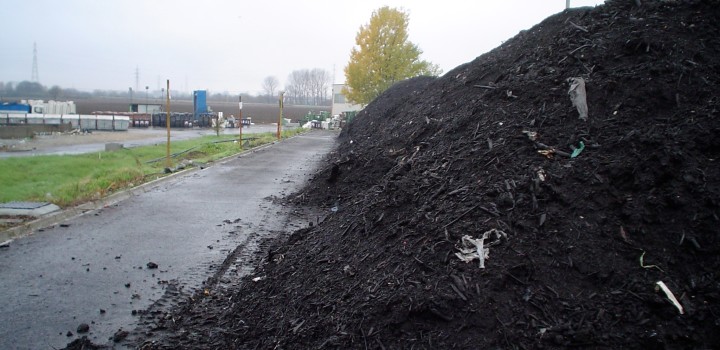DEVELOPMENT OF SPECIFIC AGRICULTURAL PRACTICES WITH THE USE OF RECYCLED WASTES SUITABLE FOR INTENSIVELY CULTIVATED MEDITERRANEAN AREAS UNDER DEGRADATION RISK
Products
Partner
• Hellenic Agricultural Organization DEMETER – Soil Science Institute of Athens – SSIA, Greece
• Center for Agricultural Experimentation and Assistance (CeRSAA) – Albenga (SV), Italy
• Centro de Edafologia y Aplicada del Segura (CEBAS) – Consejo Superior de Investigaciones Cientificas (CSIC) – Department Soil and Water Conservation and Organic Resources Management, Spain
• MIGAL Galilee Technology Center, Israel
Funding body
European Union – 7th Framework Programme – Coordination of Agricultural Research in the Mediterranean Area (ARIMNet)
Objectives
The overall objective is to research, advance and finally develop alternative low cost and environment friendly agricultural practices across Med basin with the use of treated agricultural wastes (AW) by recycling nutrients and water from treated agricultural wastes taking also advantage of the beneficial, unique properties of natural zeolites.
More specifically the objectives of the ARIDWASTE project are:
– development and demonstration of sustainable alternative cultivation practices by recycling nutrients and water from treated agricultural wastes;
– production of a “Code for Best Management Practices” for use of treated wastes in agriculture;
– development, implementation and wide dissemination of an integrated, recourse based scenario for the protection and improvement of serious degraded cultivated soils in the Mediterranean area, by investigating changes in the chemical properties of soil and the soil-plant interaction as induced by the effect of AW wastes in combination with natural reactive materials;
– evaluation of the main agricultural processed wastes of different origin in market regarding their suitability for crop cultivation;
– integration of appropriate actions and measures that should be adopted at local, regional, national, transnational level regarding new or amended legislation for organic wastes recycling policy in agricultural areas in the frame of the Soil Thematic Strategy;
– reduction of carbon footprint by recycling organic wastes and sequestration of carbon and nitrogen on soil.
Materials and methods
Main axes of the project are:
- Assessment of application practices of processed AW in intensive crop production: literature-based survey regarding the already funded national, european and international projects, guidelines and recommendations at different policy levels regarding technologies and application practices for recycling of agricultural wastes in intensive crop production systems.
- Evaluation of treated wastes: characterization of agricultural wastes that are produced in the countries of the partners of the project and possible environmental threat if not processed. This axe includes mainly laboratory analyses in order to a) characterize the main organic wastes produced and processed in the participating countries regarding their suitability to promote crop production and quality, and the potential effect on soil properties. CERSAA will focus on olive oil mills wastes (OMW) produced by three-phase extraction system since they represent a major environmental problem.
- Quality plant response tests of the selected recycled organic wastes: the quality of the products will be assessed through tests for a) substrate phytotoxicity b) organic matter mineralization in order to establish the most suitable rates of product to be added to soil, the capacity of the different organic materials to release nutrients needs to be determined.
- Application of treated wastes and zeolite in field: developed agricultural practices will be tested in open field using a variety of plants with which are mainly cultivated in each participated country and with high market value and are water and nutrient consuming.
- Use of treated Agricultural Wastes in Mediterranean agricultural sector – Development of integrated scenario: it will be proposed an integrated scenario for the use of processed AW in the Mediterranean agricultural sector oriented to the development and wide application of sustainable and at the same time specific for each crop agricultural practices. A Code of Sustainable use of wastes for agricultural application will be developed including appropriate data for handling and use of the treated organic materials, physicochemical characteristics, application methodologies and practices under different soil types and climatic conditions.
Outcomes
The results of the project will deeply impact the conventional crop nutrient management techniques as these are nowadays applied and will bring strong environmental, technical, social and economical benefits.
Environmental impacts will arise through:
- the proper management of organic wastes from agricultural operations;
- the assessment of the use of treated organic wastes in extensive crop production which will bring the development of sustainable practices;
- introducing zeolite in AW practices will increase their application efficiency in terms of nutrient and water use efficiency to maintain or increase crop yields of high quality especially on degraded and other soils having unfavorable productive traits for crop cultivation;
- the development and sustainable use of alternative cultivation practices for the main market and water demanded crops in Mediterranean through a well design dissemination activity will raise environmental public awareness.
Economical impacts will arise through:
- cost savings in the sector of the waste management;
- focusing on farmers, the implementation of management plans to their farms will assist them to improve the efficiency of their business
- increase Mediterranean product competitiveness through improvement of productivity with simultaneous protection and improvement of natural sources quality and reduction of running costs, which will result in cheaper crop products.

